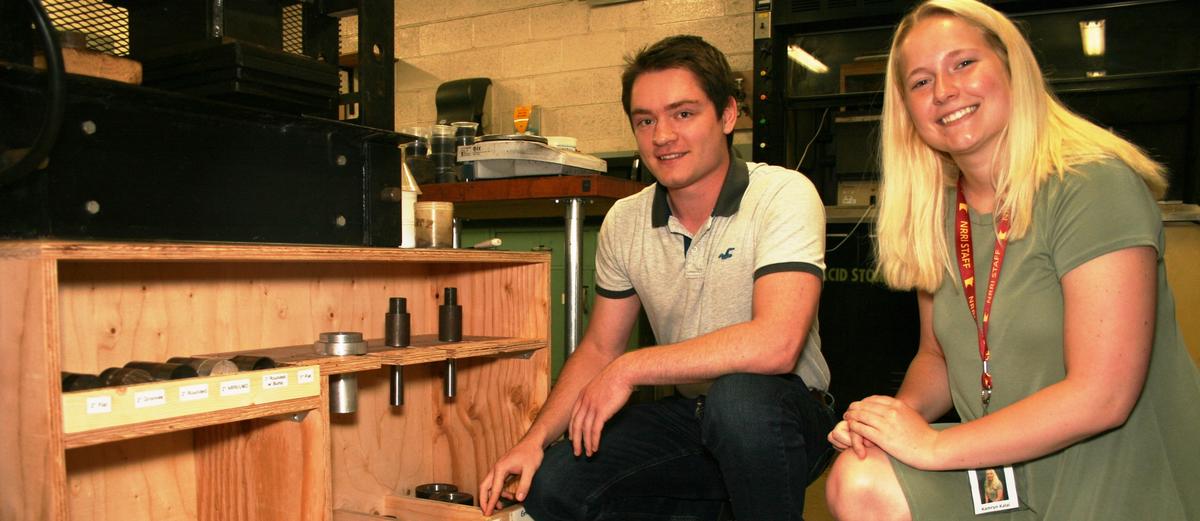There’s a reason life outside the classroom is called the “real world.” And Evan Myers learned why this past summer working at NRRI as an intern.
“Different problems come up that you didn’t expect, where in school, everything you need to solve a problem is given to you,” he said. “I realized how important testing and data gathering are when you’re trying to figure out a problem.”
NRRI gave 25 students – both undergrads and graduate level – real world, hands-on projects this summer. The experiences boost their confidence, their understanding and their resume.
Myers put his Process Optimization class to the test by improving the efficiencies of NRRI’s hydraulic press. He also weighed in on brainstorming sessions to figure out problems with large scale biomass conversion. Since graduating this spring from UMD with a degree in chemical engineering, Myers is hoping to start a new job soon.
Kamryn Kalal, a UMD chemical engineering major on track to graduate in 2020, was introduced to value-added timber products as a NRRI technician. Her experience led her to add an environmental engineering minor to her program to learn more. She is developing a life cycle assessment of thermally modified strand veneer lumber; a project with Washington State University.
“I’ve always been like The Lorax. Don’t cut down the trees!” Kalal said. “But now I realize how much energy and cost goes into making concrete and steel, and how much better it is to use renewable wood. It’s been interesting.”
Samuel Zrust described his summer internship as “super useful and, personally, really exciting.” He joined the aquatic ecology crews in assessing wetland health around Lake Superior and Lake Michigan. They set up fyke nets to capture fish, measure and identify the species, then release. They collected water quality data and tested water clarity.
“Going out in the field, I felt like I actually learned more,” said Zrust. “You can read scientific papers and books, but you really have to get out and be curious, ask questions.” He has one semester to go in his UMD biology major with a chemistry minor and plans to pursue a master’s degree.
